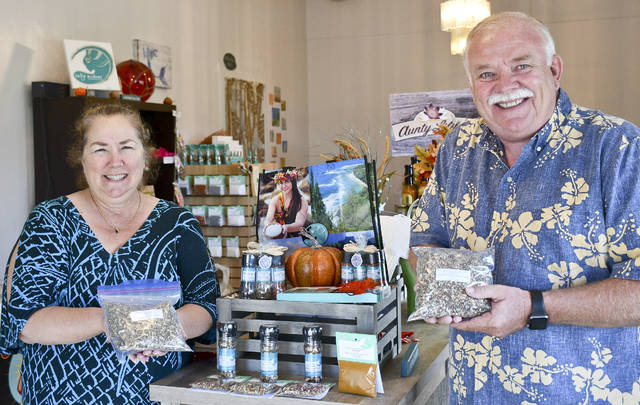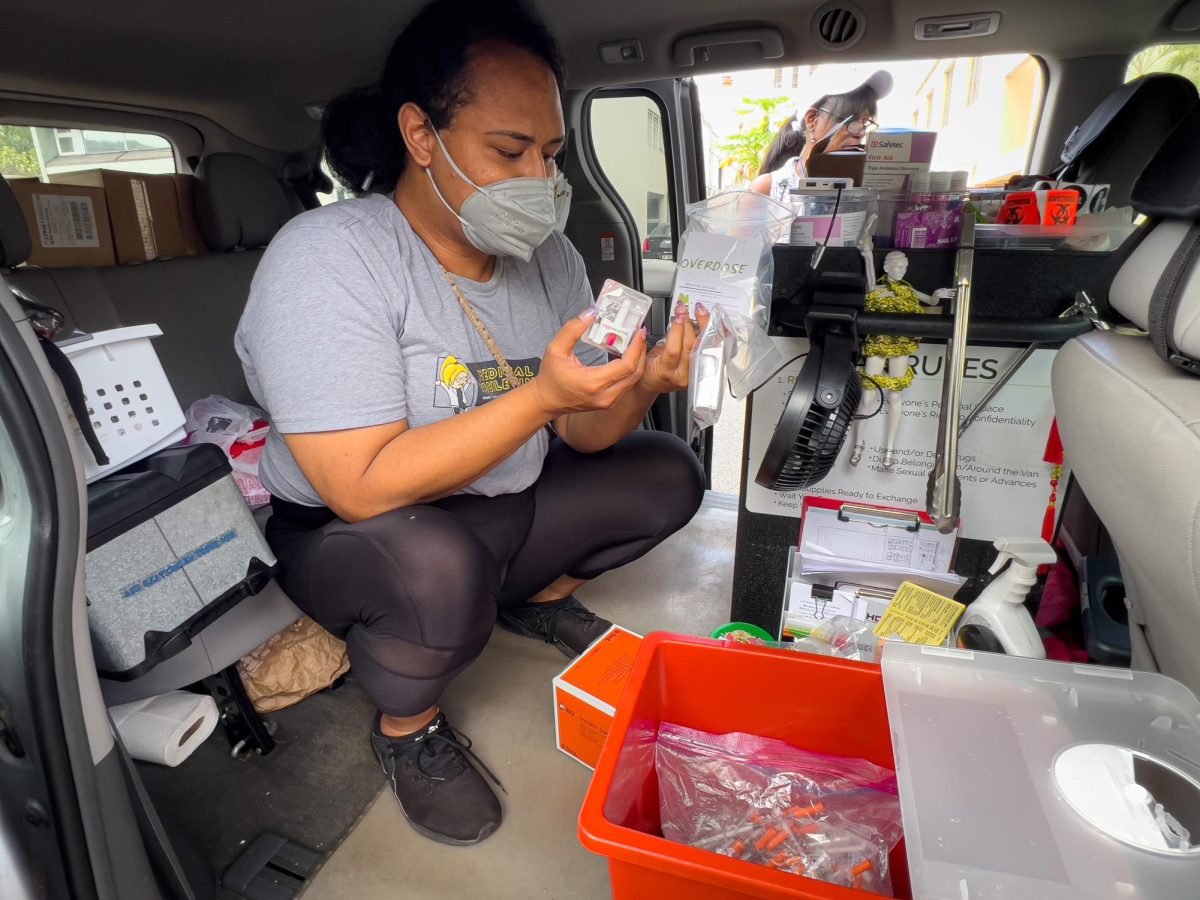Traditional Hawaiian salt-making practices continue to be threatened, as ingredients such as red alaea, Hawaiian charcoal, volcanic clay and other natural materials that dye the salt are currently not federally approved.
State lawmakers want to help local salt makers as they continue to wrestle with a 2019 Food and Drug Administration ruling that changed what it considered to be “safe” food additives. With this change, the agency excluded two ingredients found within authentic Hawaiian sea salt and essentially ruled it illegal under the new guidelines.
Salt business owner Laura Cristobal Andersland is one of many affected by this ruling. She started Salty Wahine in 2008 and has continued the longstanding tradition of Hawaiian salt making as she teaches her son and granddaughter the old practices.
The new FDA guidelines caused a large hit to business and the ability to continue to share her love of traditional practices. Salty Wahine won Hawai’i Business Magazine’s Exporter of the Year award in 2012 and 2017, but exports dried up after the FDA’s ruling.
“We’ve lost a lot of clients outside of Hawai’i just because somehow they figured this was unsafe, the FDA didn’t approve it,” Andersland said. “That’s not the case.”
The FDA’s actions caused large problems for local salt businesses as they could not legally export their Hawaiian salt. Businesses shifted tactics and also tried to petition the legality of their additives with the FDA.
“We had to shift our business plan and try to figure out how to gain that money back in a different way,” Andersland said. “And then also, try to pursue how we can get this back on the approved list, and that there has been quite the struggle.”
House Bill 650 would offer funding for these small businesses in their petition to make Hawaiian salt legal. The bill also calls for a budget to educate about the significance of Hawaiian salt.
“We want these products to exist, and there’s general recognition that like these are important products that are local sea salt or local salt manufacturing, it’s unique, not just like in the U.S., but in the world,” said Alexis Chapman, director of operations at Hawaiʻi Food Industry Association.
Education would allow for small businesses to be assisted during the process and act as a resource to help those outside of Hawaiʻi understand the significance of this FDA oversight.
“It can be daunting for many of our small businesses who may not have the resources or the time to understand the complexity on a federal level,” said Sherry Menor, president and CEO of the Chamber of Commerce Hawaiʻi. “So this proactive approach will help many of our local businesses address these barriers.”
In order for the salt to become legal, the additives of red alaea and volcanic clay need to be tested and approved, which is a lengthy and pricey endeavor. For small businesses, this is a near impossible task.
“The whole color additive petition process costs quite a bit of money, along with the testing that’s required,” said Andersland. “Fortunately, the University of Hawaiʻi has stepped up and has offered to do a lot of all of that. We all stick together here. I love it but it still costs a lot of money, more money than small businesses can afford.”
The additive petition bill was first introduced in 2020 to give resources and support to small businesses to get the testing and be able to continue their trade. However, due to COVID and the economic crisis, it was not seen as a priority and the bill did not pass.
Companies such as the Hawaiʻi Food Industry Association and the Chamber of Commerce act as resources for local businesses to help them through this process and legislative session to petition for the FDA change.
“Having those minerals in there, it’s beneficial for your health, as Hawaiians, it’s a part of the aina,” said Andersland. “In my opinion, it’s pretty spiritual. It’s not just salt, it’s more than that. Hawaiian sea salt is ranked very high, like it’s highly revered by people all over the world who know about it, so they seek it out.”
This issue has been around for a long time but is now a matter of priority as it awaits funding. From business owners, lawmakers and organizations, the community effort is evident.
“I think we as a state have to also be willing to make that investment in that product, and not just in the product,” said Chapman. “That’s the foundation. That’s how we grow our own local food, food system, become stronger and more resilient and more diversified.”
Menor further explained that our economy needs to keep growing and ensure that local businesses are able to thrive in the environment as well.
“This bill is not new, it’s just a continuation of what we started. This has been in the legislature’s ears for years,” said Andersland. “I’m hoping that right now it’ll just really come to fruition. So there’s a light at the end of the tunnel on this, and I can’t wait till it gets done.”










